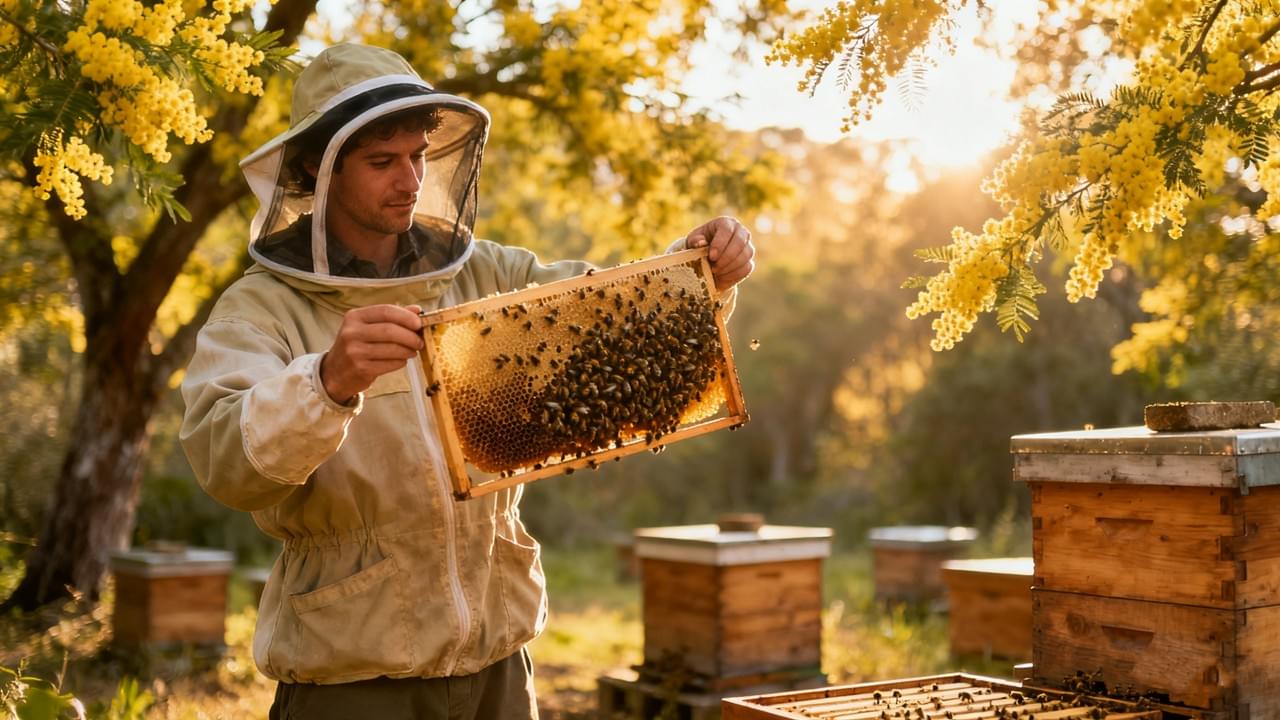In today’s global food supply chain, sustainability and transparency are no longer optional—they’re essential to brand credibility and consumer trust. Ethical ingredient sourcing means protecting ecosystems, ensuring fair labor, and preserving product purity. Among natural sweeteners, Acacia honey has emerged as a symbol of ecological harmony and authenticity.
Wuhu Deli Foods, a trusted honey manufacturer in China, has made sustainable sourcing of Acacia honey central to its mission. This case study explores how the company integrates environmental care, ethical labor, and global compliance to deliver responsibly sourced honey to international markets.
Table of Contents
ToggleUnderstanding Acacia Honey and Its Ecological Value
Derived from the nectar of Robinia pseudoacacia, Acacia honey is celebrated for its pale color, gentle floral taste, and slow crystallization. Yet, its real worth lies in the healthy ecosystems that support bee life.
Unsustainable beekeeping—such as overharvesting or habitat loss—can devastate pollinators and biodiversity. Deli Foods counters this by sourcing exclusively from ecologically protected zones, supporting natural forest regeneration, and banning chemical pesticides near hives. These steps embody the company’s dedication to sustainable honey production and biodiversity protection.
Deli Foods’ Framework for Ethical Honey Procurement
1. Traceability from Hive to Jar
Traceability defines ethical honey procurement. Every jar of Deli Foods’ Acacia honey is linked to its origin, down to specific beekeeping sites and cooperative networks. Using digital batch tracking, buyers can verify environmental compliance and authenticity in real time.
This transparent system reassures global partners that Deli Foods’ honey is never sourced from regions suffering ecological degradation—a commitment that distinguishes it from mass-market suppliers.
2. Fair Partnerships with Local Beekeepers
True sustainability begins with people. Deli Foods collaborates with rural beekeeping cooperatives, offering fair-trade pricing, technical training, and equipment upgrades. These initiatives help small-scale beekeepers improve yields while preserving traditional, low-impact methods.
Through fair-trade beekeeping practices, economic benefits extend directly to local communities, ensuring that ethical responsibility and profitability grow together.
3. Environmental Stewardship in Production
Deli Foods applies green manufacturing principles throughout its production process. Advanced energy-efficient equipment minimizes power usage, while by-products such as beeswax, pollen, and propolis are upcycled into natural derivatives like cosmetics and supplements.
This closed-loop production model reduces waste and reinforces sustainability across the entire supply chain.
Ensuring Food Safety and Global Standards
Beyond environmental ethics, Deli Foods prioritizes food safety and traceability. Its processing facilities are certified under ISO, HACCP, and FSSC 22000, meeting international standards for purity and hygiene.
For B2B buyers, these certifications are crucial—they confirm compliance with varying import regulations and reflect consistent product integrity. Every batch undergoes strict laboratory tests for moisture, HMF, and pesticide residue levels, guaranteeing honey that is both safe and sustainably sourced.
Sustainability Beyond the Apiary: Responsible Logistics
Sustainability at Deli Foods extends into logistics. The company maintains a 50,000-ton annual capacity, supported by temperature-controlled storage and efficient export operations from Chinese ports.
Through green logistics—using recyclable packaging, optimized routes, and reduced fuel emissions—Deli Foods minimizes its carbon footprint while maintaining global supply reliability. These sustainable practices position the company as a future-ready supplier for environmentally conscious brands.
Why Ethical Sourcing Benefits B2B Brands
In today’s competitive market, buyers and consumers increasingly demand transparency. Ethical sourcing empowers brands to answer key questions confidently:
- Where does this honey come from?
- Are the bees and beekeepers protected?
- Was it harvested sustainably?
Partnering with Deli Foods gives businesses the confidence to say “yes.” Using ethically sourced Acacia honey aligns with UN Sustainable Development Goals—notably SDG 12 (Responsible Consumption) and SDG 15 (Life on Land).
Incorporating such responsibly sourced ingredients enhances brand reputation, consumer trust, and long-term value creation—an approach already adopted by many leading natural food brands worldwide.
Case Study Results: Transparency in Action
The results of Deli Foods’ sustainable sourcing of Acacia honey speak for themselves:
💧 +20% increase in beekeeper income through long-term fair-trade contracts.
🌱 30% reduction in processing waste thanks to eco-efficient systems.
🔍 100% traceability achieved across all export batches.
These outcomes demonstrate how sustainable honey production drives measurable social, environmental, and economic benefits—making Deli Foods a model of ethical excellence in Asia’s B2B honey sector.
A Sweeter Future Built on Responsibility
The future of global food manufacturing depends on responsible sourcing. Through transparency, environmental care, and partnership, Deli Foods proves that sustainable sourcing of Acacia honey is both a moral choice and a smart business strategy.
For brands committed to ethical honey procurement, collaborating with Deli Foods means investing in products that respect people, protect the planet, and sustain profit. It’s a partnership built not just on sweetness—but on shared responsibility for a better world.


